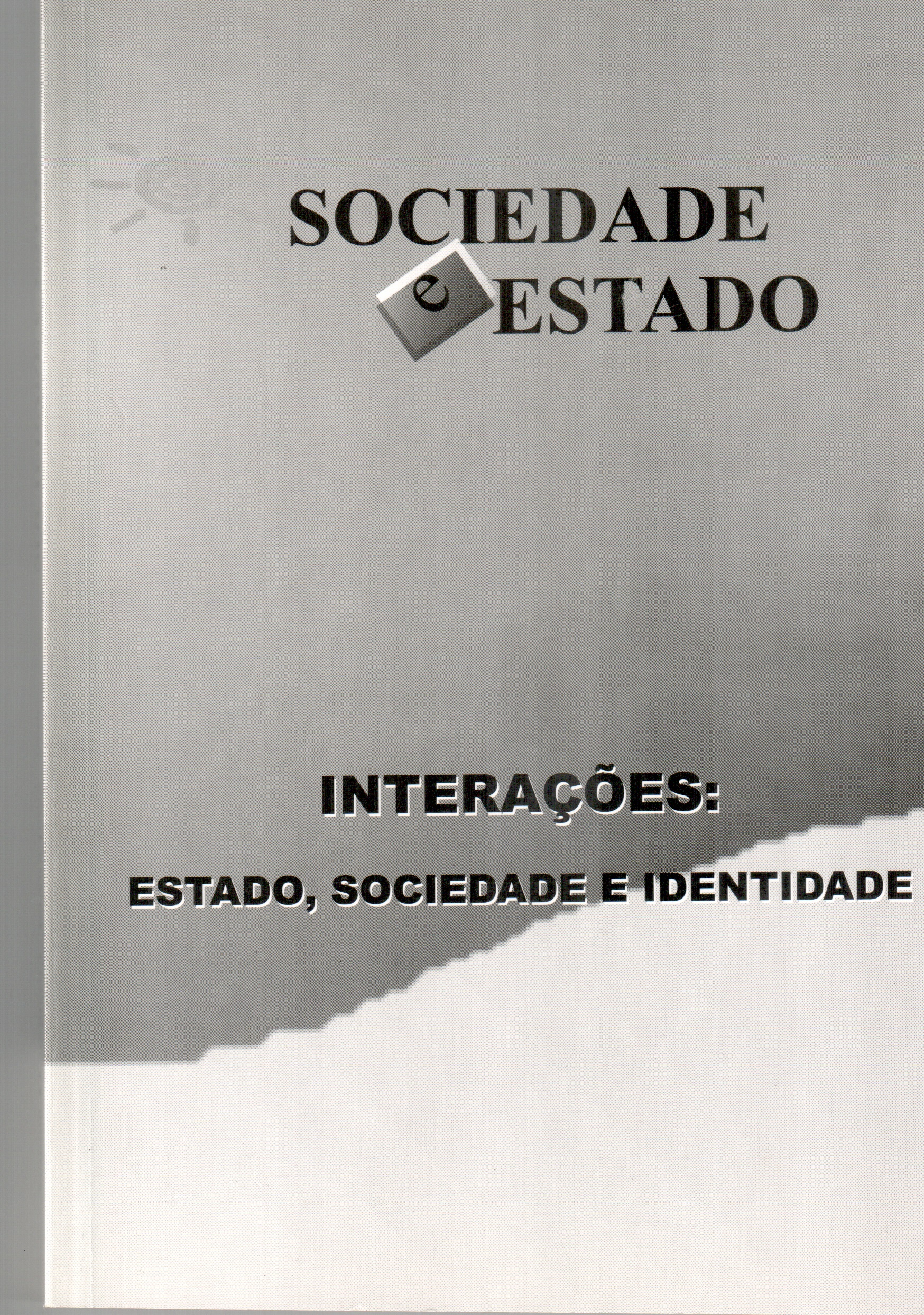O contrato social ausente
Keywords:
Contrato social, política, problemas econômicos, América Latina, sociedade civil.Abstract
This article considers that the political origin of economic problems is an insufficient of the government reforms. It depends the idea of a Social Contract capable of sustaining the governance and the structural reforms is specially crucial for Latin America where the fragility of its democracy and the social inefralities are remarkable.
Downloads
References
Acuna, C. e Smith (1994) “The Political Economy of Structural Adjustment: The Logic of Support and Opposition to Neoliberal Reform”. In W. Smith, C. Acuna e E. Gamarra, eds.
Alesina, Alberto (1987) “Macroeconomic Policy in a Two-Party System as a Repeated Game”. Quarterly Journal of Economics, 102(410).
Alesina, A. and J. Sachs (1988) “Political Parties and the Business Cycle in the United States, 1948-1984”. Journal of Money, Credit and Banking, 20(1).
Alesina, A. and G. Tabellini (1988) “Credibility and Politics”. European Economic Review, 32.
Alesina, A. and A. Drazen (1991) “Why are Stabilizations Delayed?”. American Economic Review, 81(5).
Alesina. A. e D. Rodrik (1992) “Distribution. Political Conflict, and Economic Growth: a Simple Theory and Some Empirical Evidence”. In A. Cukierman, Z. Hercowitz and L. Leiderman, orgs. Political Economy, Growth and Business Cycles. Cambridge, Ma.: The MIT Press.
Arida, P. e A. L. Resende (1984) “Inertial Inflation and Monetary Reform”. /« J. Williamson, ed. (1985) Inflation and Indexation: Argentina, Brazil and Israel. Washington: Institute for International Economics. Originalmente apresentado em seminário em Washington.
Aujac, Henri (1950) “LTnfluence du Comportement des Groupes Sociaux sur le Développement d’une Inflation”. Economie Apliquée, no.4.
Bates, R. and A. Kruegef, (1993) “Generalizations Arising from the Country Studies”. In Bates and Krueger, orgs.
Bates, R. and A. Krueger, orgs. (1993) Political and Economic Interactions in Economic Policy Reform. Oxford: Blackwell.
Bobbio, Norberto (1979) “11 Modello Giusnaturalistico”. In N. Bobbio e M. Bovero, Società e Stato nella Filosofia Política Moderna. Milan: Il Saggiatore.
Bresser Pereira, L. e Y. Nakano (1983) “The Theory of Inertial or Autonomous Inflation”. Capítulo 3 deL. Bresser Pereira e Y. Nakano (1987) The Theory of Inertial Inflation. Boulder: Lynne Rienner Publishers.
Bresser Pereira, L. and Y. Nakano (1990) “Hiperinflação e Estabilização no Brasil: o Primeiro Plano Collor”. Revista de Economia Política 11 (4), outubro-dezembro 1991 Trabalho apresentado em conferência em Knoxville, Temiessee, junho 1990, e publicado em P.Davidson & J.Kregel, orgs. Economie Problems of the 1990s, London: Edward Elgar, 1991.
Bresser Pereira, Luiz Carlos (1988) “O Caráter Cíclico da Intervenção Estatal”. Revista de Economia Política 9(3), julho-setembro 1989. Trabalho apresentado em conferência em São Paulo, julho 1988. Uma versão mais completa foi publicada posteriormente: “Economie Reforms and the Cycles of the State”. World Development 21(8), agosto 1993.
Bresser Pereira, Luiz Carlos (1990) “A Crise Econômica da América Latina: Consenso de Washington ou Crise Fiscal?” Pesquisa e Planejamento Econômico, 21(1), abril 1991. Aula Magna no XVIII Encontro Nacional de Economia da ANPEC, Brasilia, 4 de dezembro, 1990. Também publicada em A Crise do Estado. São Paulo: Editora Nobel, 1992.
Bresser Pereira, Luiz Carlos, org. (1991) Populismo Econômico. São Paulo: Editora Nobel.
Bresser Pereira, Luiz Carlos (1993) ‘Economic Reforms and Economic Growth: Efficiency and Politics in Latin America”. Capítulo 1 de Bresser Pereira, L., A. Przeworski and J. Maravall.
Bresser Pereira, Luiz Carlos (1996) Economic Crises and the State Reform in Brazil, Boulder, Co: Lynne Rienner Publishers.
Bresser Pereira, L., A. Przeworski and J. M. Maravall (1993) Economic Reforms in New Democracies. Cambridge, Ma: Cambridge University Press.
Bresser Pereira, L. e J. Abud (1994) “Net and Total Transition Costs: The Timing of Economic Reform”. São Paulo: Fundação Getúlio Vargas, Departamento de Economia, Texto para Discussão no. 41, novembro 1994. World Development 25(6), June 1997.
Bruno, M., S. Fischer, E. Helpman, N. Liviatan, orgs. (1991) Lessons of Economic Stabilizations and Its Aftermath. Cambridge, Ma: The MIT Press.
Buchanan, J. and G. Tullock (1962) The Cauculus of Consent. Ann Arbor: University of Michigan Press.
Buchanan, J. and R. Tollison, orgs. (1984) The Theory of Public Choice II. Aim Arbor: University of Michigan Press.
Canitrot, Adolfo (1975) “La Experiência Populista de Redistribution de Ingresso”. Desarrollo Economico, no. 15.
Cukiennan, A., Z. Hercowitz and L. Leidennan, eds. (1992) Political Economy, Growth and Business Cycles. Cambridge, Ma.: The MIT Press.
Domubsch, R. and S. Edwards, orgs. (1991) The Macroeconomics of Populism in Latin America. Chicago: The University of Chicago Press.
Draibe, Sonia (1993) “As Políticas Sociais e o Neoliberalismo”. Revista USP, no. 17.
Edwards, S. and G Tabellini (1990) “Explaining Fiscal Policies and Inflation in Developing Countries”. Cambridge, Ma.: National Bureau of Economic Research, Working Paper no. 3493.
Ethier, Diane, ed. (1990) Democratic Transition and Consolidation in Southern Europe, Latin America and Southeast Asia. London: Macmillan.
Gourevitch, Peter (1986) Politics in Hard Times. Ithaca: Cornell University Press.
Graham, Carol (1992) “The Politics of Protecting the Poor During Adjustment: Bolivia’s Emergency Social Fund”. World Development, 20(9).
Grindle, M. e J. Thomas (1991) Public Choice and Policy Change. Baltimore: Joan Hopkins University Press.
Grossman, Gene M. (1990) “Promoting New Industrial Activities: A Survey of Recent Arguments and Evidence”. OECD Economic Studies, no. 14, primavera.
Grossman, G. and E. Helpman (1993) Innovation and Growth. Cambridge, Ma.: The MIT Press.
Haggard, S. andR. Kaufman, orgs. (1992) The Politics of Economic Adjustment. New Jersey: Princeton Universit} Press.
Haggard, S. and R. Kaufman, orgs. (1995) The Political Economy of Democratic Transition. Princeton: Princeton University Press:
Hirsch, F. and J. Goldthorpe, orgs. (1978) The Political Economy of Inflation. London: Martin Robertson.
Hirschman. Albert (1978) “The Social and Political Matrix of Inflation: Elaborations on the Latin American Experience”. In Essays in Trespassing. Cambridge, Ma: Cambridge University Press, 1981. Originalmente publicado em 1978.
Hirschman, Albert (1981) Essays in Trespassing. Cambridge, Ma: Cambridge University Press.
Krugman, Paul (1992) Toward a Counte r-Revolution in Development Theory. Washington: Proceedings of the World Bank Annual Conference on Development Economics, 1992. Supplement to The World Bank Economic Review and The World Bank Research Obsever.
Lopes, Francisco L.(1984) “Inflação Inercial, Hiperinflação e Desinflação”, Revista da ANPEC, no.7, Dezembro. Republicado em Lopes, F. L. (1986)) Choque Heterodoxo: Combate à Inflação e Reforma Monetária. Rio de Janeiro: Editora Campus.
Mankiew, N.G and D. Romer, orgs. (1991) New Keynesian Economics. Cambridge, Ma.: The MIT Press.
Mueller, Dennis (1976) 'Public Choice: a Survey”. Journal of Economic Literature, 14(2). Nelson, Joan (1989) “The Politics of Pro-Poor Adjustment”. In Joan Nelson, org. (1989). Nelson, Joan, org. (1989) Fragile Coalitions: the Politics of Economic Adjustment. New Brunswick: Transaction Books.
Nelson, Joan, ed. (1990) Economic Crisis and Policy Choice. New Jersey: Princeton University Press.
Nordhaus, W. (1975) “The Political Business Cycle”. Review of Economic Studies, 42(2).
O’Donnell, Guillermo (1977) “Estado yAlianzasen Argentina, 1956-1976”. Desarrollo Econômico, Janeiro 1977. Reproduzido in Robert Bates, org. (1988) Toward a Political Economy of Development. Berkeley: University of California Press.
Olson, Mancur (1965) The Logic of Collective Action. Cambridge, Ma: Harvard University' Press.
Oxhom, P. and G. Ducatenzeiler (1994) “Social Policies as Political Strategies Processes of Inclusion and Exclusion”. Trabalho apresentado ao XIII Congresso Internacional da Latin American Studies Association.
Pazos, Felipe (1972) Chronic Inflation in Latin America. Nova York: Praeger Publishers.
Persson, T. e G. Tabellini (1992) “Growth, Distribution and Politics”. European Economic Review no.36.
Pinto, Aníbal (1973) Inflation: Raices Estruturales. Mexico: Fondo de Cultura, coleção Lecturas, n2 3.
Putnam, Robert D. (1993) Making Democracy Work. Princeton: Princeton University Press.
Przeworski, Adam (1985) Capitalism and Social Democracy. Cambridge, Ma: Cambridge University Press.
Przeworski, A. e M. Wallerstem, (1985) “Material Interest, Class Compromise, and the State” Cambridge, Ma: Cambridge University Press.
Przeworski, Adam (1992) Markets and Democracy. Cambridge, Ma: Cambridge University Press.
Romer, Paul (1989) “Capital Accumulation in the Theory of Long-Run Growth”. In Robert Barro, org. Modem Business Cycle Theory. Cambridge, Ma.: Harvard
University Press.
Sachs, Jeffrey (1988) “Social Conflict and Populist Policies in Latin America”. In R. Brunetta and C. Dell-Arringa, orgs. (1989) Labor Relations and Economic Performance. London: MacMillan Press. Cambridge, Ma: NBER Working Paper no. 2897, March 1989. Trabalho apresentado a conferência em Veneza.
Sachs, Jeffrey D. (1994) “Life in the Economic Emergency Room”. In Willianson, ed.
Soh, Byung Hee (1986) “Political Business Cycle in Industrialized Democratic Countries”. 39(1).
Sola, Lourdes (1994) “Estado, Reforma Fiscal e Governabilidade Democrática: Qual Estado?”. Novos Estudos Cebrap, no.38.
Thorp, R. andL. Whitehead, orgs. (1979) Inflation and Stabilisation in Latin America. London: Macmillan.
Willianson. John. ed. (1994) The Political Economy of Policy Reform. Washington: Institute for International Economics.
Willianson. J. e S. Haggard (1994) “The Political Conditions for Economic Reform". in John Willianson, ed.
Downloads
Published
How to Cite
Issue
Section
License
Copyright (c) 2022 Revista Sociedade e Estado

This work is licensed under a Creative Commons Attribution-NonCommercial 4.0 International License.




.jpg)



















